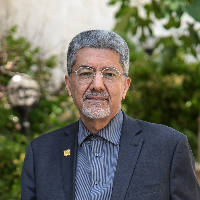Explanation of the Role of Power-knowledge in the Spatial Planning with Emphasis on Disciplinary Power and Bio-Power
In spite of existing several urban development plans in developing countries and the major use of instrumental rationality in the preparation of these plans, it can be seen that the problems of these cities, including informal settlements, dilapidated fabric and urban economy, have not been solved and got worse and worse. Therefore, instead of analyzing the process and implementation of urban development plans, the hidden aspect of urban theory, power, and the effect of that in the process of urban planning must be considered that usually is neglected by urban planners.
The main purpose of this study is to explain the role of power-knowledge in the process of spatial planning by emphasis on disciplinary power and bio-power.
The approach of this study is social constructionism and the research method is Foucault discourse analysis by accepting this hypothesis that capitalism is shifting from imperialism to empire. In addition, two aspect of Power-knowledge such as disciplinary power and bio-power are analyzed and then the role of power in the process of spatial planning from the point of view of critical urban theory is defined.
From a power-knowledge perspective, Foucault's production of space is not merely derived from the laws and regulations and formal process of spatial planning, and several factors, including disciplinary knowledge and discourse, disciplinary institutions, permanent exceptions, and bio-power, are effective in spatial planning.
It is necessary thaturban planners in addition to traditional urban planning approaches that they have learned in university, consider power-knowledge issue in the process of urban planning to be more efficient in the informal process of urban planning.
-
Analyzing the consequences of modernization and globalization in creating spatial differences between urban neighbourhoods the case study of Amirieh and Zafaranieh neighbourhoods of Tehran
Fereshteh Dastvareh, Jamile Tavakolinia *,
Journal of Sustainable City, -
An Analysis of the Notion of Public Interest in planning through a Cartographic Methodology of TracingA Land-Use Conversion Plan in Chamestan as a Case Study
Somayeh Zandieh *, Mozafar Sarrafi
Journal of Architecture and Urban Planning, -
Insurgency planning in gray spaces(Case Study: Abkooh Neighborhood in Mashhad)
NASER NEJATI, *, Reza Najafzadeh
HOnar - ha - ye - ziba Memari - va - shahrsazi, -
Genealogy of Bio-Power in Urban Development Plans (Case Study: Abkooh Neighborhood in Mashhad)
, *, Reza Najafzadeh
International Journal of Architecture and Urban Development, Spring 2022


